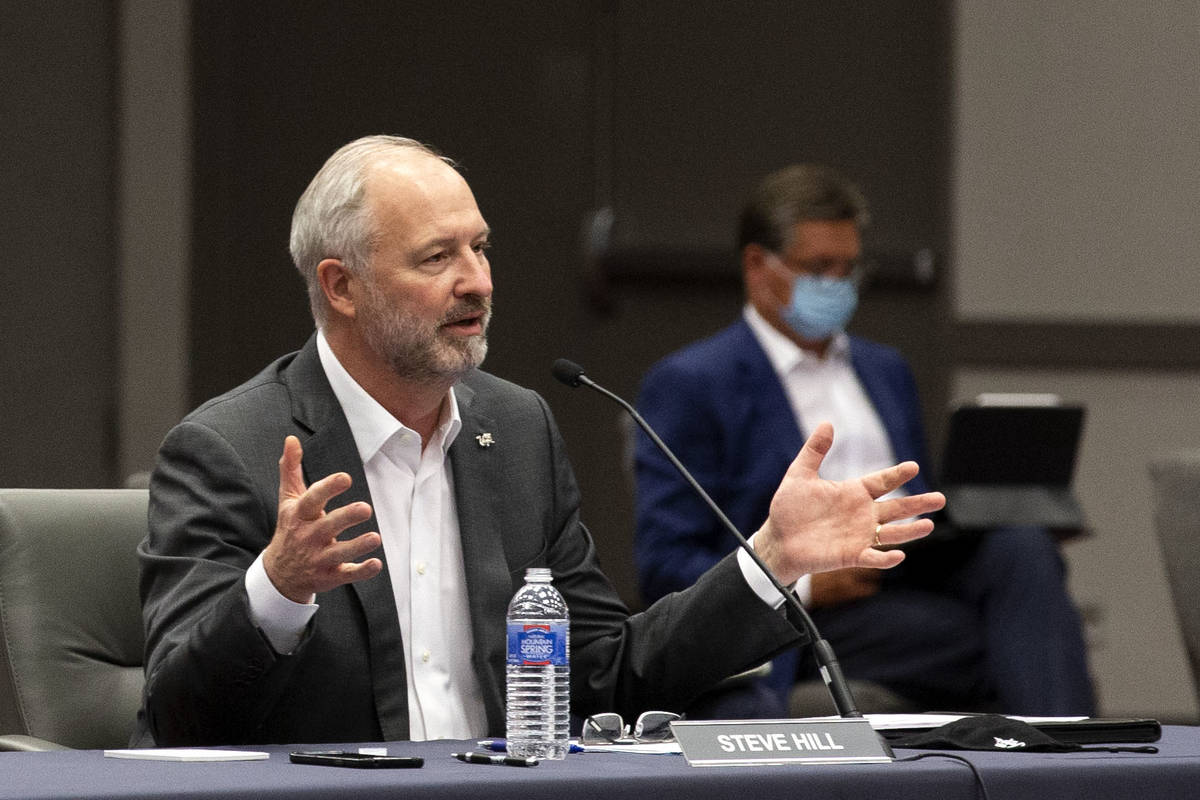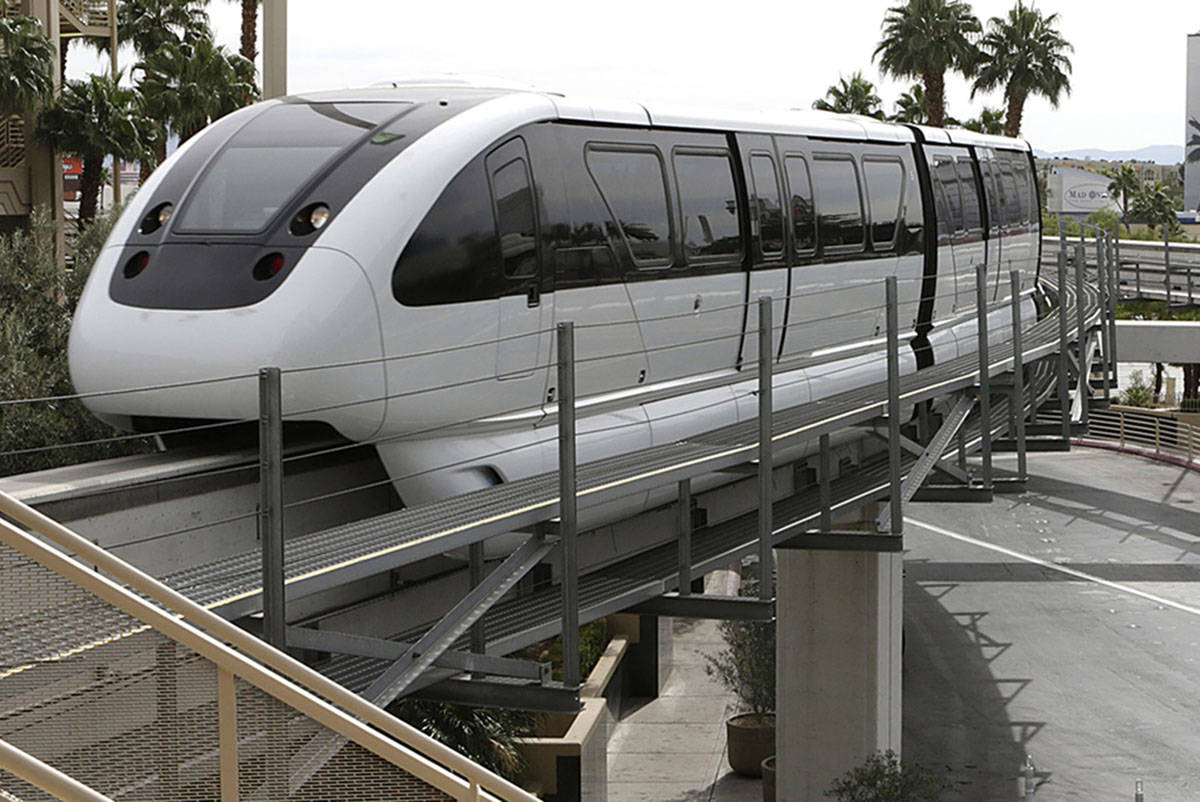STEVE SEBELIUS: Las Vegas monorail ends as it began
The Las Vegas Monorail has always had pretensions to be more that it really is, a shuttle service bringing tourists from a handful of casinos on the east side of the Strip.
It was built primarily on the juice of its founders, who turned a short train ride between MGM and Bally’s into a slightly longer train ride to an additional four casinos and the convention center.
The train never lived up to its wildly inflated ridership projections and had trouble paying its bills, even though it was built with state-sanctioned tax-free bonds and avoided most taxes, thanks to its nonprofit status. Its bankruptcy was inevitable.
And while many have dreamed of extending the train beyond its current four-mile route, it never actually made good on those plans.
But legendary Las Vegan Bob Broadbent predicted more than once it would end up in public hands, and he was ultimately proven right. Last week, the Las Vegas Convention and Visitors Authority agreed to purchase the troubled train.
The purchase was less because the convention authority wanted to run a train and more because of a special clause included in its franchise agreement that blocks other multi-stop transportation systems on most of the east side of the Strip.
By dissolving that noncompete clause, new technologies such as The Boring Co.’s underground people movers will be free to start providing transportation to resorts, attractions such as the Allegiant Stadium and maybe even McCarran International Airport, all without having to take up an inch of surface-level right-of-way or intrude upon airline height restrictions.
“I think the most important thing from my perspective in this agreement today is the fact that we eliminate the largest obstacle, and that is the exclusivity, that no one could come into this corridor until that exclusivity was eliminated,” said Clark County Commissioner Larry Brown, the chairman of the LVCVA board.
And that fact is underscored by the deadline looming in the monorail’s future: In eight to 10 years, the current monorail cars will be at the end of their useful lives and new ones will cost $200 million. LVCVA CEO Steve Hill says there’s no way he’ll ask the agency to pony up that much money for a train that makes only about $2 million a year.
So the monorail is looking to end its life much as it began, plying a humble, lonely route to the back doors of its casino customers.
There’s still utility in that, Hill says. The LVCVA will operate the train for the next decade, moving people to the convention center and tourists between hotels. During extremely popular conventions such as CES, MAGIC or SEMA, roads near the convention center are clogged with cars, and the monorail absolutely provides a useful alternative to taxis or ride shares.
And Hill says the LVCVA is open to new ideas about the monorail, private investors who might come up with a way to make it work, do something different with the existing tracks or something else yet unforeseen.
But even Hill acknowledges that, without the benefit of eliminating a barrier to transportation alternatives, the LVCVA would have been much less interested in acquiring the train. “Having it block alternatives at this point is a real obstacle,” he said.
But is it worth the $24 million it will cost to acquire the trains, some of the stations and the all-important franchise agreement? (For the record, the entire LVCVA board, with the exception of Las Vegas Mayor Carolyn Goodman, voted to buy the monorail.)
Hill says the alternative was the monorail once again going to bankruptcy court, where a fire sale buyer or even the current bondholders would have acquired the system. The new owners would likely not have wanted to waive or sell the franchise restriction because that would make running the monorail even more difficult and that much less profitable.
Instead, the LVCVA will run the train for the next decade as tourism officials work on finding the best alternatives to getting people to and from the convention center. They’ll contract for operating the monorail, maybe with some of the same people who run it now (although maybe not at the same rate; monorail CEO Curtis Myles currently makes almost as much as Hill does to run the entire LVCVA).
In the meantime, the monorail, occasionally useful, will serve as a reminder that all the juice, all the hype and all the marketing in the world can’t change reality. That’s a useful — albeit expensive — lesson for all of Las Vegas to heed.
Contact Steve Sebelius at SSebelius@reviewjournal.com or 702-383-0253. Follow @SteveSebelius on Twitter.





























